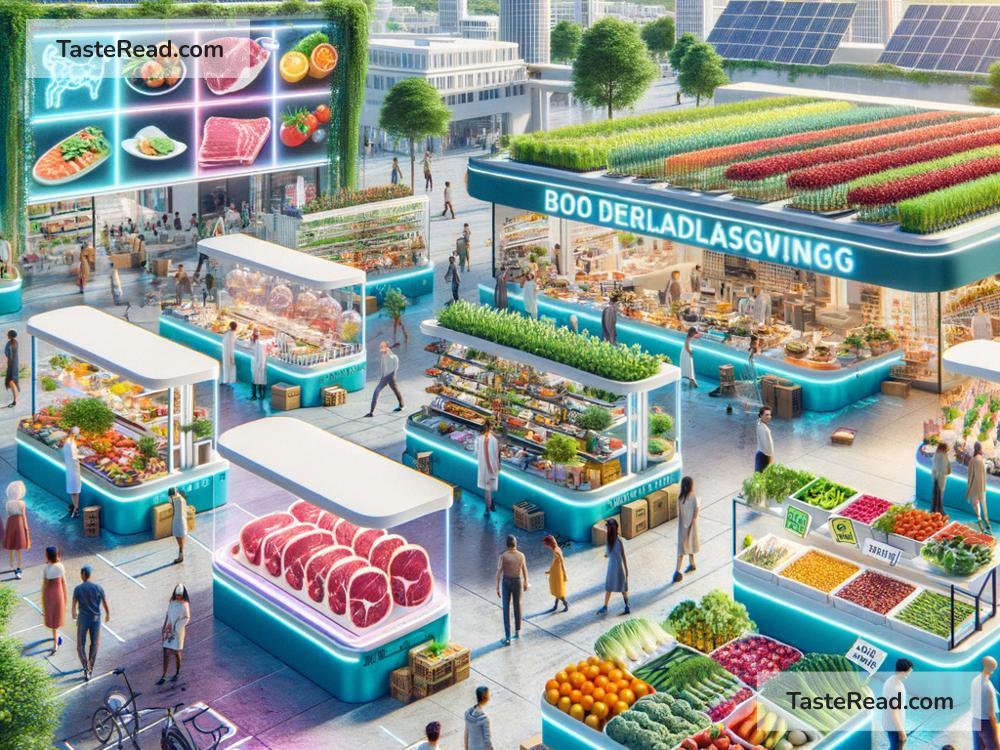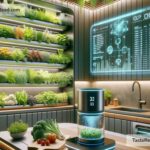The Future of Food and Holistic Sustainability
Food is an essential part of life. It fuels our bodies, brings people together, and shapes cultures around the world. But as the population grows and the planet faces environmental challenges, the way we produce and consume food needs to change. What does the future of food look like? And how can we ensure it is sustainable? The answer lies in holistic sustainability—an approach that takes into account not just environmental factors but also social, economic, and cultural well-being. Let’s explore this fascinating topic in simple terms.
The Challenges We Face Today
Our current food systems are under strain. Agriculture uses huge amounts of land, water, and energy. The heavy use of chemicals like pesticides and fertilizers can harm ecosystems. Forests are being cleared to grow crops, and this destroys habitats for plants and animals. On top of that, food production contributes to climate change by releasing greenhouse gases. For example, livestock farming creates methane gas, which is a big driver of global warming.
At the same time, many people around the world do not have enough to eat. Hunger and malnutrition continue to affect millions, while others have access to an overabundance of unhealthy processed foods. Food waste is another major issue—up to one-third of the food produced globally is thrown away instead of being eaten. These problems show that the way we currently deal with food is far from sustainable.
The Future of Food
The future of food is about innovation, community, and mindful choices. Scientists, farmers, and businesses are working together to find solutions that help us produce food in a more sustainable way. Some of the ideas they are exploring include alternative proteins, vertical farming, precision agriculture, and reducing food waste.
Alternative Proteins: Less Dependence on Traditional Meat
Meat production, especially beef, has a huge environmental impact. To address this, alternative proteins are being developed. Plant-based meat substitutes, like burgers made from soy or peas, are already popular. Additionally, lab-grown meat, which is produced from animal cells in a lab, could become a common option. These alternatives use less water and land and produce fewer greenhouse gases than traditional farming practices.
Vertical Farming: Growing Food in Cities
Vertical farming is an exciting innovation that could transform how we grow food. Instead of farming on wide-open fields, crops are grown in stacked layers in controlled environments. These farms can be set up in urban areas, meaning fresh produce can be grown right where people live. Vertical farming uses less water and doesn’t require pesticides, making it eco-friendly and efficient.
Precision Agriculture: Technology Meets Farming
Technology is playing a big role in shaping the future of food. With precision agriculture, farmers use tools like drones, sensors, and artificial intelligence to monitor crops and soil conditions. This allows them to apply water, fertilizer, and pesticides only where it’s needed, reducing waste and harm to the environment. Precision agriculture helps farmers increase productivity while being kinder to the planet.
Tackling Food Waste: Wasting Less, Feeding More
Reducing food waste is another key part of creating a sustainable food future. Better storage, smarter packaging, and innovative apps are helping both consumers and businesses cut down on waste. For example, some apps connect restaurants and grocery stores with people who want to buy leftover food at lower prices. On a larger scale, food that would otherwise be thrown away can be redistributed to those in need.
What Is Holistic Sustainability?
Holistic sustainability is a way of thinking that goes beyond just protecting the environment. It looks at how different factors—like health, equity, and economics—are connected. When we talk about sustainable food systems, we need to consider not only the planet but also the people involved.
For example, food systems should support farmers and workers by paying fair wages and providing safe working conditions. They should promote healthy eating habits, making fresh and nutritious food accessible to everyone, not just those who can afford it. Meanwhile, cultural diversity should be respected, allowing traditional agricultural practices and diets to thrive alongside new innovations.
What Can We Do?
Even though big changes in food systems often happen at the industry and policy level, individuals can still make a difference. Here are some simple steps anyone can take to support the future of food and holistic sustainability:
-
Eat More Plant-Based Meals: Reducing meat consumption can have a big impact on the environment. Try incorporating more fruits, vegetables, grains, and legumes into your diet.
-
Buy Local: Supporting local farmers and businesses reduces the carbon footprint of transporting food and helps local economies thrive.
-
Cut Down on Food Waste: Plan your meals, store food properly, and use leftovers creatively to reduce waste.
-
Learn and Share: Educate yourself about sustainable food choices and share what you learn with friends and family.
-
Support Sustainability Initiatives: Choose companies and products that prioritize ethical practices and eco-friendly methods.
A Hopeful Future
The challenges we face may seem overwhelming, but there is hope. Around the world, people are coming up with creative ways to produce food in a way that protects the planet and improves lives. By embracing holistic sustainability, we can create food systems that nourish both people and the Earth.
The future of food isn’t just about what we eat—it’s about how we work together to build a world where everyone has enough to eat, where traditions are respected, and where the environment is cared for. Change may take time, but every step toward sustainability brings us closer to a brighter future for all.


